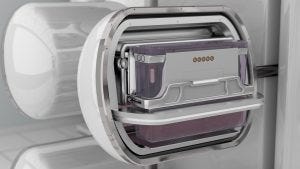
Lonza has acquired a controlling stake in its partner Octane Biotech and will incorporate the closed and automated Cocoon processing tech into its autologous cell therapy offering.
Contract development and manufacturing organization (CDMO) Lonza has collaborated with Octane Biotech for the past three years to develop the Cocoon manufacturing system. But this week, the Swiss CDMO purchased additional equity to hold a controlling stake of 80% in the firm, with an option for outright ownership.
“Owning a controlling stake ensures that Cocoon is developed and manufactured in line with Lonza global best practices in quality and operations,” Marc Funk, COO of Lonza Pharma & Biotech, told BioProcess Insider.

The Cocoon system incorporates operations needed for scalable manufacturing of cell therapies. Image c/o Lonza
“It also enables us to accelerate research and development activities, and to continue to deliver on our commitment to customers to find sustainable solutions for autologous cell therapy manufacturing.”
The size of the investment has not been divulged.
Cocoon platform
The technology itself is a patient-scale, closed and automated manufacturing system, and has been described by Lonza as “a game changer” in the autologous cell therapy space.
“Autologous therapies currently rely on manual processes. Highly trained personnel and extensive quality control points are needed to ensure that the manufacturing process generates the target release criteria. As increasing numbers of autologous therapies approach commercial phase, scale out of manual processing is not feasible in terms of costs, operations and quality,” Funk said.
“Cocoon offers closed and automated processing with the entire bioprocess contained within a disposable cassette to ensure maximum patient and operator safety and to streamline logistics. The cassette can be configured to enable the manufacturing of a diverse range of cell therapy products including CAR-T and mesenchymal stem cell (MSC) therapies, for example.”
According to Funk, embedded sensors provide real-time biofeedback and enable adjustments in bioprocessing, allowing for patient-specific, optimized processes to accommodate natural variations in cell source behavior.
Furthermore, he said the tech can reduce handling time for individual patient samples from 57 to 16 hours in an autologous manufacturing run.
The system will be integrated into Lonza’s cell and gene therapy offering, and according to Eytan Abraham, head of emerging technologies R&D, is currently being brought into the firm’s Houston site.
“The automation and flexibility of the system allow it to relatively easily be integrated in to multiple sites as well as in a decentralized model,” he told this publication.
About the Author
You May Also Like

schedl_b_and_w.jpg?width=100&auto=webp&quality=80&disable=upscale)
schedl_b_and_w.jpg?width=400&auto=webp&quality=80&disable=upscale)



